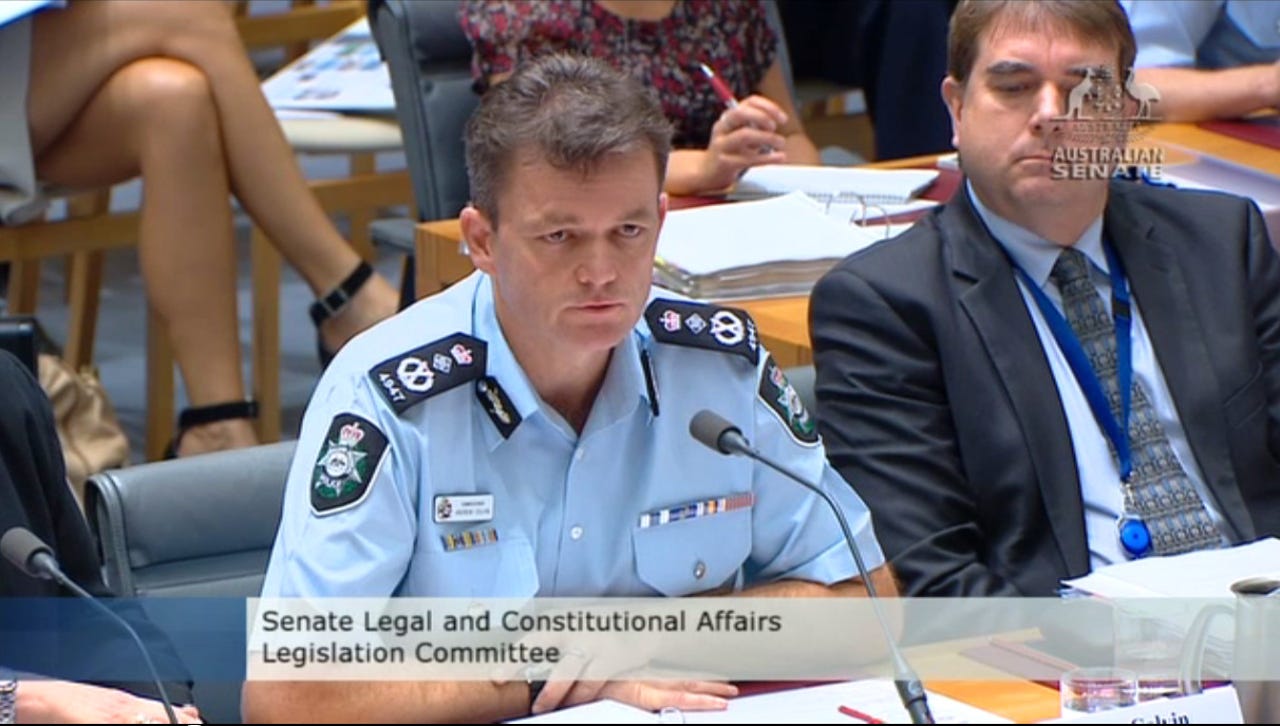We only lost 33 Cabinet documents, not 400: AFP

The Australia Federal Police (AFP) has responded to the ABC's reporting that it lost 400 files from the National Security Committee over a five-year period, and said the correct number is 33.
"A September 2013 audit of Cabinet records by the Department of Prime Minister and Cabinet identified a number of Cabinet documents issued to the AFP were not located," the AFP said on Thursday. "More than 90 percent of these documents were subsequently located or confirmed to have been destroyed."
"Following the audit process to verify the appropriate destruction of the documents, a cross-check identified that 33 Cabinet documents remained unaccounted for in the period between 2008-2013."
According to the AFP, those documents are presumed to be destroyed, despite it not having any record of such an event occurring.
"The AFP has no evidence to suggest that this process has resulted in a compromise to Australia's national security and refutes any suggestion otherwise," it said.
During the September 2013 audit, the AFP said a number of its Cabinet Liaison Officers had properly destroyed Cabinet documents and recorded it, but they were "not aware of the requirement to mark this destruction on a specific electronic database".
The ABC had based its report on Cabinet documents found within a filing cabinet purchased at a second-hand furniture store, which the AFP labelled as incomplete and outdated.
In November, a report by the Commonwealth Ombudsman into the AFP "mistakenly" accessing the call records of a journalist found the law enforcement agency had "insufficient awareness" of journalist warrant requirements within the Professional Standards Unit (PRS) of the AFP; that a number of PRS officers did not "appear to fully appreciate their responsibilities when exercising metadata powers"; that the AFP relied on manual checks and corporate knowledge rather than proper processes; and that documentation was not effective in preventing the breach.
The one recommendation from the report called on the AFP to make all staff members that use metadata powers undergo training so as to have a "thorough understanding" of the laws and their responsibilities.
As Australia's metadata laws stand, the one exception for law-enforcement agencies warrantlessly accessing customer call records, location information, IP addresses, billing information, and other data across a two-year window is to obtain a warrant for accessing journalists' metadata when attempting to identify a source.
The Ombudsman's report found that despite the AFP claiming in April that the illegally accessed data was deleted, in fact, not all copies of the data were destroyed. PRS found other copies of the data prior to a visit by the Ombudsman's office, which were subsequently destroyed.
"We suggest that AFP, when destroying information, seek assistance from its technical officers to ensure that the information is destroyed from all locations on its systems," the report said.
The ABC Cabinet documents also showed that the then-Rudd government expected to have investors in the National Broadband Network, and Telstra would structurally separate to be a part of the NBN build.
Related Coverage
Australian government cannot handle its own data securely, why give it yours?
Australia has performed an amazing act of self-leakage, selling a pair of locked filing cabinets of its own secret Cabinet documents.
Troops not at risk over Strava breach: Australian Defence Force
Defence has said electronic fitness devices and apps are important to the quality of life of Australian soldiers.
Key NBN takeaways from ABC's Cabinet documents
Documents published by the ABC have shown what the Australian government was expecting in terms of NBN funding arrangements and negotiations with Telstra back in 2009.
AGD stripped of AFP and ASIO to create Dutton-led enforcement superministry
The Attorney-General's Department will have its operational control for the federal police and domestic spy agency moved into a new Home Affairs ministry.
Australian Federal Police Commissioner labels cyber a 'genuinely wicked problem'
The issue of online crime cannot be solved simply by regulation or legislation, the head of the AFP has said.
